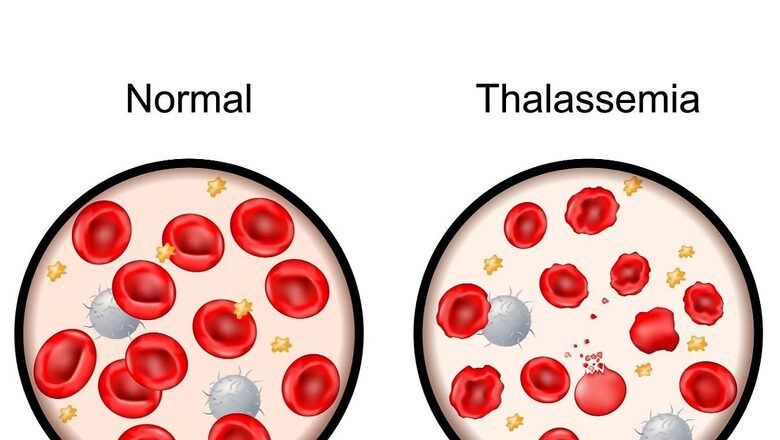
views
Thalassemia, a hazardous genetic disorder, is finally receiving the much-needed attention it deserves, thanks to increased awareness efforts led by influential Bollywood star, Jackie Shroff. In a recent podcast, Shroff is seen highlighting the essential next steps for individuals battling the disorder. He emphasized that it is crucial for aspiring parents with thalassemia to understand and discuss this health condition before opening up the parenthood chapter. “Everyone should undergo screening before planning a pregnancy. If both parents are carriers of thalassemia minor, their child will be born with thalassemia major. This condition requires the child to receive a blood transfusion every 15 days for their entire life,” said Shroff during an interaction.
Dr Sandeep Talwar, Fertility Expert, Nova IVF Fertility, Vasant Vihar, says, “Thalassemia is a hereditary blood disorder caused by mutations in the hemoglobin genes passed from parents to children.” This condition results in genetic mutations that hinder the body’s ability to produce sufficient hemoglobin, a crucial protein in red blood cells (RBCs) responsible for transporting oxygen throughout the body. Due to the decreased production of red blood cells and hemoglobin, individuals with thalassemia are at risk for anemia and various other health complications.” The disorder primarily affects two types of genes: alpha and beta-genes, causing alpha-thalassemia and beta-thalassemia
Symptoms of Thalassemia
Symptoms of Thalassemia include:
● Fatigue
● Yellow or pale-colored skin
● Facial deformities
● Tiredness
● Abnormal growth
● Dark urine
Thalassemia and Fertility
“Thalassemia can affect your ability to conceive. It can impact sex hormone levels, leading to reduced fertility. For example, iron overload can damage the pituitary gland, which regulates the functions of the testicles and ovaries. This damage can lead to infertility issues, including abnormal ovulation and impaired sperm production in Thalassemia patients. Other fertility issues associated with Thalassemia include hyperthyroidism and premature ovarian aging, which occurs earlier compared to those without Thalassemia,” adds Dr Talwar.
Fertility experts encounter at least 5-6 couples each year, aged between 25-35, who are affected by this genetic condition. State government data indicates that Haryana has around 3,000 individuals living with thalassemia.
Vital Role of Thalassemia Screening
A thalassemia test during pregnancy is crucial. If you suspect you might have thalassemia, it’s advisable to get tested before planning to start a family.
With advancements in Assisted Reproductive Techniques like In Vitro Fertilization (IVF), the chances of conceiving a healthy child despite having thalassemia have significantly improved. This is made possible through advanced procedures like Pre-Implantation Genetic Testing (PGT).
IVF involves fertilizing eggs with sperm outside the body to create embryos. PGT-M can be performed before pregnancy to greatly reduce the risk of having a child with thalassemia. PGT-M involves genetic analysis of embryos created through IVF to identify and separate diseased embryos from healthy ones. The embryo that is free of thalassemia is then selected for transfer, significantly increasing the likelihood of a successful pregnancy while minimizing the risk of passing on the genetic disorder.
Diagnosis and Treatment
A diagnosis can be made during pregnancy through tests such as a complete blood count, specialized hemoglobin tests, and genetic testing. The treatment for thalassemia varies depending on its severity; mild cases may need little to no intervention, while severe cases might require regular blood transfusions, iron chelation therapy to prevent iron overload, and potentially bone marrow or stem cell transplants for a cure. Awareness and early intervention are crucial in managing thalassemia and preventing severe complications.




















Comments
0 comment